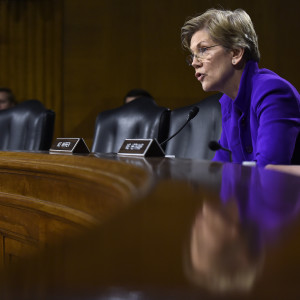With a new Congress and administration taking aim at the Consumer Financial Protection Bureau, state attorneys general are likely to ramp up their prosecutions of fraud and abuse in the coming years. Call it federalism at work.
“They can enforce whatever state law they have, and every state has some sort of consumer protection law,” said Alan Kaplinsky, head of the consumer financial services practice at Ballard Spahr, and an adviser to major players in the industry. “State litigation will increase. It will happen over the next four years.”
With President-Elect Donald J. Trump and a Republican-controlled Congress likely to restructure the CFPB or curb its authority, experts see a new source of pressure coming on the financial services industry. States have broad authority to prosecute financial crime, and Democrats who support the CFPB’s work still control 21 state attorneys general offices. Also, state agencies have now had 5 years of experience working with a very muscular federal agency. The only thing holding them back may be money.
When Congress created the CFPB in 2010, it was the first-ever federal regulator for all businesses of consumer finance, an area long handled by state regulators and law enforcers. Elizabeth Warren, then in charge of setting up the bureau, now a Democratic senator from Massachusetts, developed the state attorneys general as allies in enforcement, and it led to extensive state-federal cooperation.
Independent State Actions
“When people are looking at actions as CFPB work, they’re ignoring the fact that they could have been independent state actions,” said Deepak Gupta, a principal at Gupta Wessler, a boutique appellate firm in Washington.
Gupta, a former CFPB official, estimates that the agency had partners in about 90 percent of its enforcement cases, though some of those were other federal agencies.
“The real problem is going to be resources,” Gupta said. “The state attorneys general don’t have the resources, and it’s not reasonable to expect them to pick up all the slack.” The CFPB had a budget of about $600 million in the previous fiscal year.
The elections of 2016 have put 28 Republicans and 22 Democrats into office as state attorneys general, according to Marjorie Tharp, a spokeswoman for the National Association of Attorneys General. In New Hampshire, an incoming Republican governor will appoint an attorney general, shifting the ratio to 29-21 next year, Tharp said.
The biggest states will have attorneys general who have signalled their support for the CFPB’s work, and can carry it forward.
Biggest States
In Pennsylvania, for example, voters elected Democrat Josh Shapiro — a former associate at Kaplinsky’s firm who launched a political career — to the state’s top enforcement position. Illinois has as attorney general Lisa Madigan, who played a leading role in a 50-state effort to sue JPMorgan Chase, Bank of America, Wells Fargo and others over abuses related to the foreclosure crisis.
Above all, New York and California will remain an extremely muscular presence in consumer protection, regardless of who controls the White House and Congress.
California voters sent their current attorney general, Kamala Harris, to the U.S. Senate so Democratic Gov. Jerry Brown will have to appoint a new one. Harris has an ongoing criminal probe into Wells Fargo over unwanted accounts it created for millions of customers.
Eric Schneiderman, the attorney general of New York, and the state’s Department of Financial Services, both wield extraordinary power over Wall Street by virtue of geography. Schneiderman made clear in an October post on Twitter that he supports the consumer bureau’s work: “Wells Fargo’s actions, leading to CEO resigning, exemplifies the urgent need to further empower the @CFPB, not weaken a crucial watchdog.”
State Authorities
And the President-Elect’s New York connections may prompt Schneiderman to turn his attention to what Trump does not, like consumer finance.
“Schneiderman sees an advantage in standing up to Trump,” Gupta said. “I wouldn’t be at all surprised if that office steps up.”
Apart from state laws, the attorney general role in policing consumer finance will turn on how much Congress changes the Dodd-Frank Act in the coming years.
The law gives the states the power to enforce individual provisions of the law, like rules on interest rate disclosures or mortgage procedures, according to Arthur Wilmarth, a professor at George Washington University Law School who has cataloged the options state officials have under Dodd-Frank.
“To provide additional safeguards to consumers, Dodd–Frank enables the states to supplement CFPB’s rulemaking and enforcement efforts,” Wilmarth wrote.

